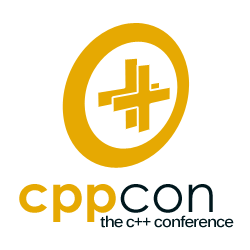Best CppCon 2016 Talks?
This is a useful Reddit thread for those looking for suggestions on where to start, or just what highlights they might have missed so far, in the >100 CppCon 2016 videos...
Best CppCon 2016 Talks?
March 11-13, Online
March 16-18, Madrid, Spain
March 23-28, Croydon, London, UK
March 30, Kortrijk, Belgium
May 4-8, Aspen, CO, USA
May 4-8, Toronto, Canada
June 8 to 13, Brno, Czechia
June 17-20, Folkestone, UK
September 12-18, Aurora, CO, USA
November 6-8, Berlin, Germany
November 16-21, Búzios, Rio De Janeiro, Brazil
By Adrien Hamelin | Nov 1, 2016 12:02 PM | Tags: experimental community
This is a useful Reddit thread for those looking for suggestions on where to start, or just what highlights they might have missed so far, in the >100 CppCon 2016 videos...
Best CppCon 2016 Talks?
By Jason Turner | Oct 31, 2016 10:37 AM | Tags: intermediate
Episode 35 of C++ Weekly.
Reading Assembly Language - Part 2
by Jason Turner
About the show:
In this episode Jason continues his brief introduction to reading the assembly language output that your compiler can generate.
By robwirving | Oct 28, 2016 07:09 AM | Tags: None
Episode 76 of CppCast the only podcast for C++ developers by C++ developers. In this episode Rob and Jason are joined by Dan Saks from Saks & Associates to discuss state of C++ in the embedded development industry.
CppCast Episode 76: Embedded Development with Dan Saks
by Rob Irving and Jason Turner
About the interviewee:
Dan Saks is the president of Saks & Associates, which offers training and consulting in C and C++ and their use in developing embedded systems. He has been a columnist for The C/C++ Users Journal, The C++ Report, Embedded Systems Design, embedded.com and several other publications. Dan served as the first secretary of the C++ Standards Committee and contributed to the CERT Secure Coding Standards for C and C++.
By Jason Turner | Oct 26, 2016 11:03 AM | Tags: intermediate
Episode 34 of C++ Weekly.
Reading Assembly Language - Part 1
by Jason Turner
About the show:
In this episode Jason gives a brief introduction to reading the assembly language output that your compiler can generate.
By robwirving | Oct 21, 2016 06:57 AM | Tags: None
Episode 75 of CppCast the only podcast for C++ developers by C++ developers. In this episode Rob and Jason are joined by Jackie Kay from Marble to discuss the use of C++ in the Robotics industry and some of the unique challenges in Robotics development.
CppCast Episode 75: Robotics with Jackie Kay
by Rob Irving and Jason Turner
About the interviewee:
After spending her childhood wanting to become a novelist, Jackie switched over from writing stories to writing code during college. She graduated from Swarthmore College in 2014 with a Bachelor's in Computer Science and went on to work at the Open Source Robotics Foundation for two years, supporting Gazebo, a physics simulator for robotics R&D, and ROS, an open source application framework for robotics development. She recently started as an early employee at Marble in San Francisco, a startup working on autonomous delivery.
Jackie was a speaker at CppCon 2015 and 2016 and a volunteer at C++ Now 2016 and frequently attends the Bay Area ACCU meetups. Her hobbies include rock climbing, travelling, and reading (books, not just blog posts).
By robwirving | Oct 14, 2016 07:12 AM | Tags: None
Episode 74 of CppCast the only podcast for C++ developers by C++ developers. In this episode Rob and Jason are joined by Kenny Kerr from Microsoft to discuss the C++/WinRT library, previously known as ModernCpp, a standard C++ projection for the Windows Runtime.
CppCast Episode 74: C++/WinRT with Kenny Kerr
by Rob Irving and Jason Turner
About the interviewee:
Kenny Kerr is an engineer on the Windows team at Microsoft, an MSDN Magazine contributing editor, Pluralsight author, and creator of moderncpp.com (C++/WinRT). He writes at kennykerr.ca and you can find him on Twitter at @kennykerr.
By Jason Turner | Oct 12, 2016 01:52 PM | Tags: None
Episode 32 of C++ Weekly.
Lambdas For Free
by Jason Turner
About the show:
Jason explores the relative cost of using lambda functions in C++.
By Adrien Hamelin | Oct 12, 2016 10:43 AM | Tags: experimental community
 An interesting talk!
An interesting talk!
Bjarne Stroustrup Interview at cppcon 2016
Sum up:
Steve Carroll and Gabriel Dos Reis chat with Bjarne Stroustrup, the inventor of C++, about his keynote this year at cppcon 2016. Bjarne talks about the past, present, and future of C++, and how to be a good programmer.
By Jon Kalb | Oct 9, 2016 11:08 AM | Tags: community
 The CppCon YouTube Channel now has all 2016 videos.
The CppCon YouTube Channel now has all 2016 videos.
All CppCon 2016 Videos Are Up!
by CppCon
From the article:
This works out to about two sessions a week for every week between now and the 2017 conference.
By robwirving | Oct 7, 2016 08:15 AM | Tags: None
Episode 73 of CppCast the only podcast for C++ developers by C++ developers. In this episode Rob and Jason are joined by Guy Davidson from Creative Assembly to discuss the work of the SG 14 game dev/low latency group including his ring buffer proposal and more.
CppCast Episode 73: SG14 Update with Guy Davidson
by Rob Irving and Jason Turner
About the interviewee:
Guy Davidson is the Coding Manager of Creative Assembly, makers of the Total War franchise, Alien:Isolation and the upcoming Halo Wars sequel, Guy has been writing games since the early 1980s. He is now also a contributor to SG14, the study group devoted to low latency, real time requirements, and performance/efficiency especially for Games, Financial/Banking, and Simulations. He speaks at schools, colleges and universities about programming and likes to help good programmers become better programmers.